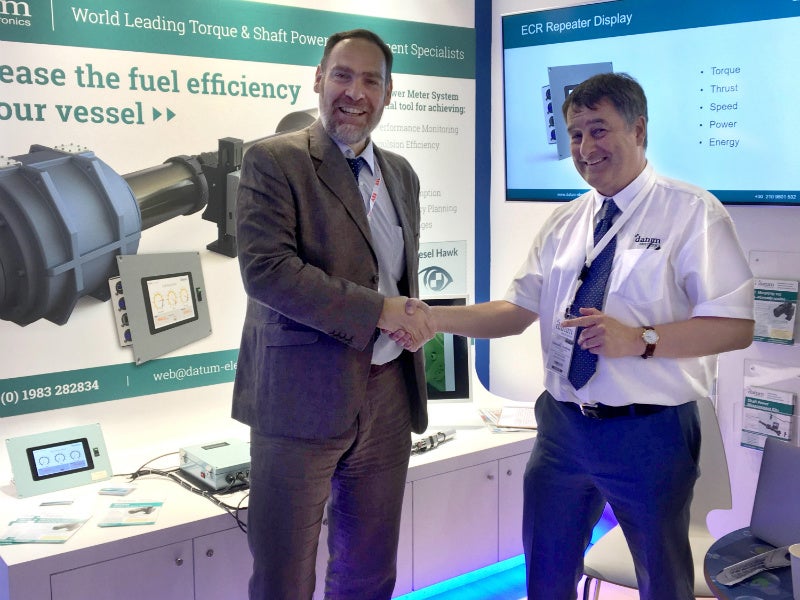
Datum Electronics has entered a Knowledge Transfer Partnership (KTP) with Strathclyde University, aimed at developing a ground-breaking technology for marine engine condition monitoring.
The KTP is a partnership, where the integral goal is to bring together industry and academia, with the aim to address a real and urgent problem presenting itself in industry. In specific, this partnership is developed between an academic body and a company, that employs a dedicated KTP Associate, who works exclusively to address the partnership’s goal.
Konstantinos Tsitsilonis, the KTP Associate stated: “I am extremely pleased to have the opportunity to work for the University of Strathclyde in an academic context, that currently demands an immediate application to the industry by Datum Electronics. This is the best way to not only learn but achieve.”
Datum Electronics is the world Leader in torque and shaft power measurement solutions, with a focus on developing highly accurate and easy-to-install torque & shaft power measurement systems to improve fuel efficiency and reduce operational costs. In addition to the KTP Associate, the team is working together with Dr. Gerasimos Theotokatos from Strathclyde University, who focuses on optimisation and experimental analysis of marine systems and ship energy systems. The collaboration is aimed at reducing the environmental footprint and enhancing safety in the marine market.
As emissions regulations are becoming ever more stringent and monitoring of different aspects of vessel performance has already started to become mandatory, the industry lies on the onset of digitalisation as the means of optimising operations and ensuring compliance. The KTP partnership between Strathclyde University and Datum Electronics will address this problem that is quickly becoming of paramount importance in the marine industry:
Working to meet customers’ needs, Datum Electronics are developing a Decision Support System (DSS), which is in a position with as few sensors as possible, to monitor and diagnose marine engines. The system analyses the dynamic torque from engine output shafts and can identify and quantify individual cylinder actions, and it can also identify changes in the engine dynamics, related to potential failure modes. By implementation the DSS, maintenance operations can be optimised by the crew on board, as the onset of failures can be identified before they result in costly maintenance and downtime, and the engine operation can be fine-tuned for effective fuel savings.
Currently, Datum Electronics has agreed four trial programs with leading ship operators, who each work in different areas of the market place, covering Cruise Ships, Bulk Carriers and Workboats. The company is looking to develop detailed studies, demonstrating the system’s value and potential.

